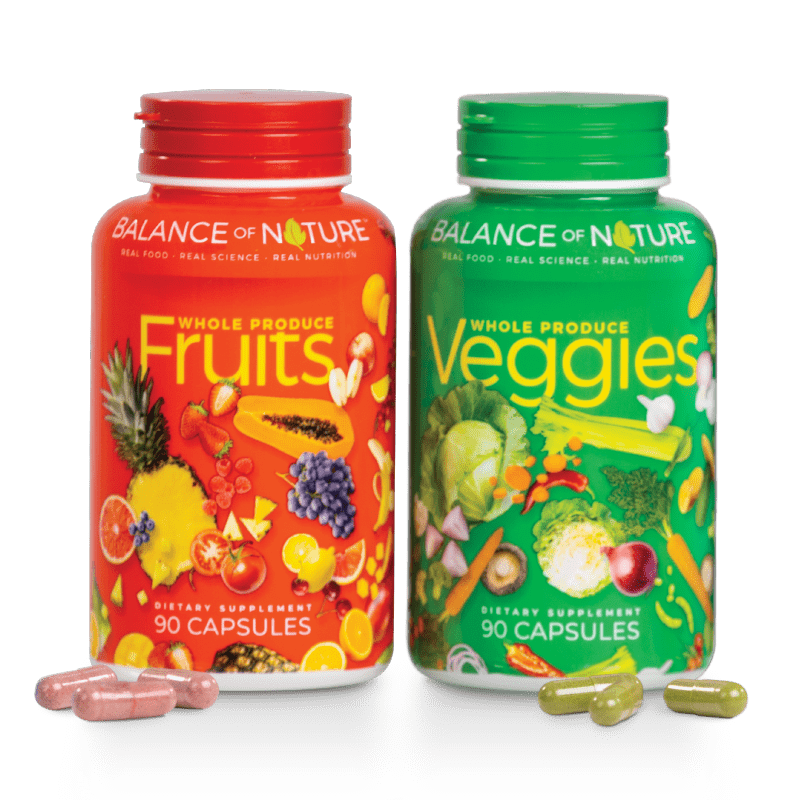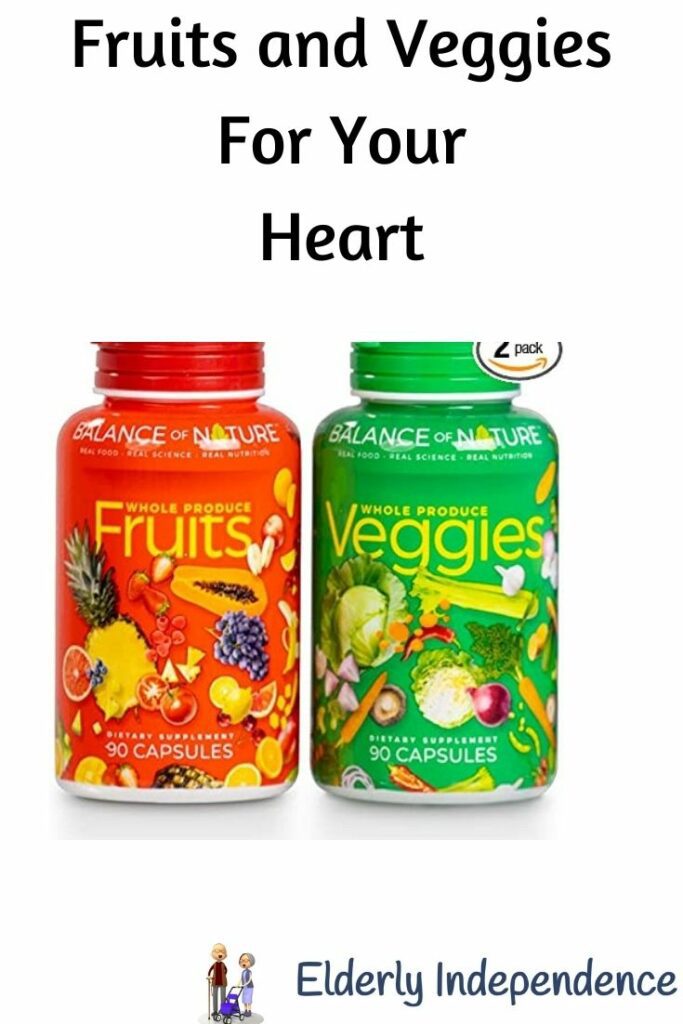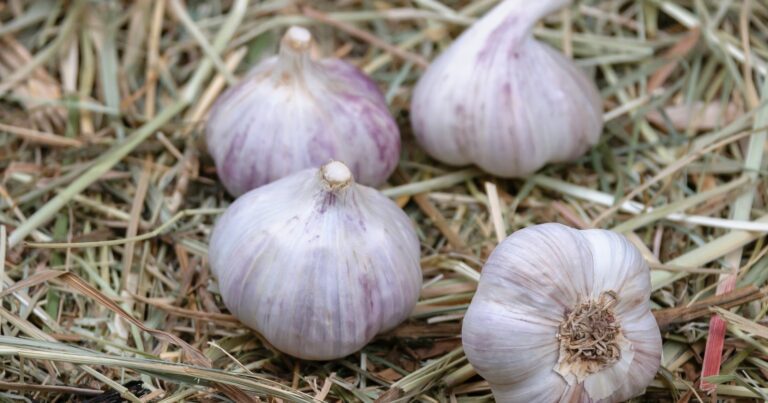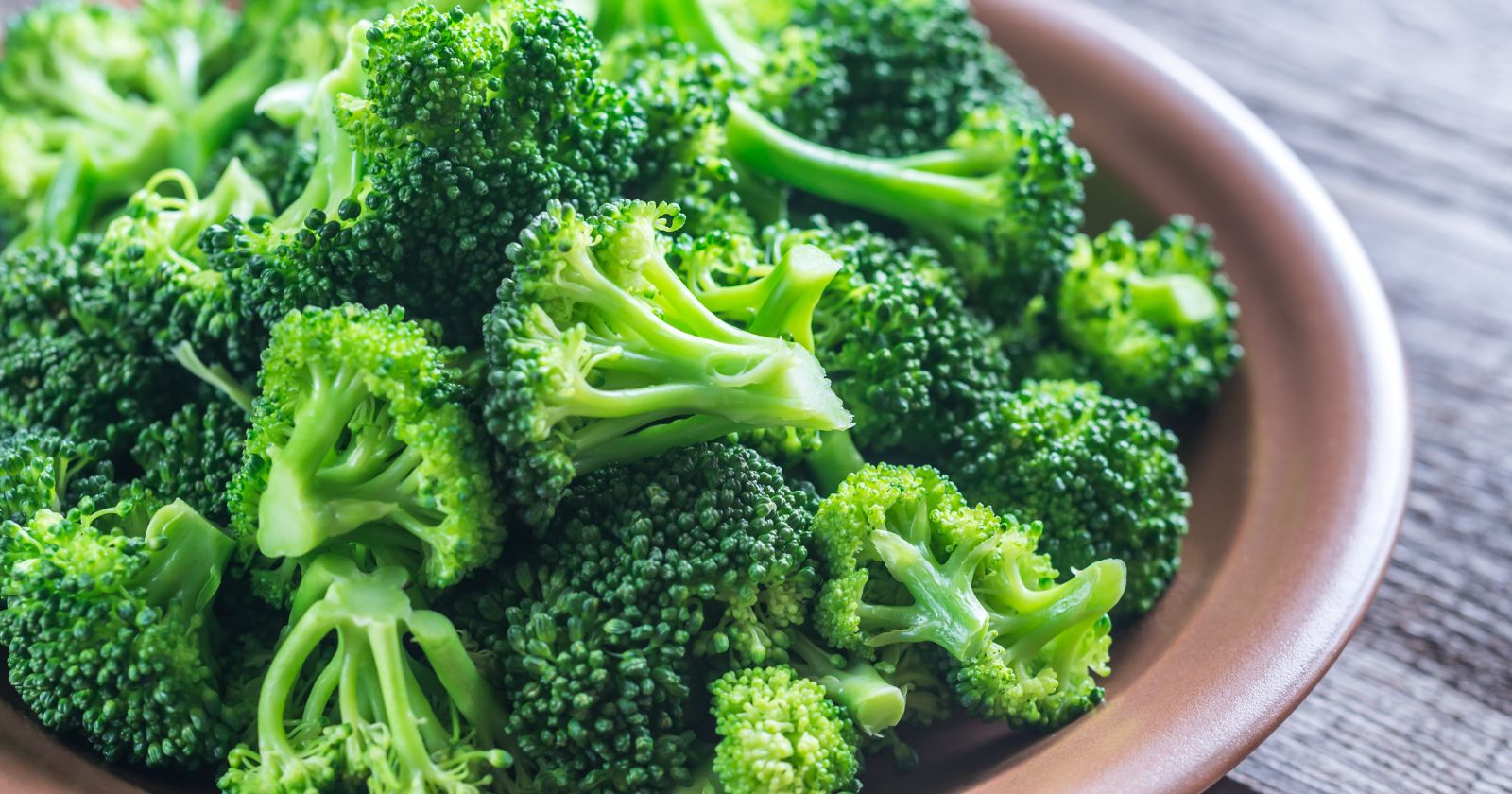Heart Attacks Are Still The #1 killer.
Healthy Heart – With Veggie And Fruit. Did you know that there are 28 fruits and veggies that can help your heart? Can you imagine eating 28 fruits and veggies every day, I don’t think so. Wait a minute there is a way to have these fruits and veggies every day in 6 capsules. The Product is Balance of Nature’s Veggies and Fruit Supplements.
Heart Disease in the United States (CDC)
- Heart disease is the leading cause of death for men, women, and people of most racial and ethnic groups in the United States.1
- One person dies every 36 seconds in the United States from cardiovascular disease.1
- About 659,000 people in the United States die from heart disease each year—that’s 1 in every 4 deaths.2
- Heart disease costs the United States about $363 billion each year from 2016 to 2017.2 This includes the cost of health care services, medicines, and lost productivity due to death.
When you consider how fruits and vegetables lose their nutrient value, by heating, letting them stay past their prime, or simply pumped up by some store.
Most people know what to do, but few people do what they know. This is where coaching from Balance of Nature surpasses its competitors. Their coaches will hold you accountable. Helping you be successful,
The 28 Fruits And Veggies That Can Help Your Heart
Below my research shows how each fruit and veggie helps the heart. There are also a few stops to examine the Balance Of Nature product.
1. Zucchini Can Help Your Heart
Zucchini may also contribute to heart health. Its high fiber content may be largely responsible. Observational studies show that people who eat more fiber have a lower risk of heart disease. Pectin, one type of soluble fiber found in zucchini, appears particularly effective at reducing total and “bad” LDL cholesterol levels. In a review of 67 studies, consuming as little as 2–10 grams of soluble fiber per day for around 1–2 months reduced, on average, total cholesterol by 1.7 mg/dl and “bad” LDL cholesterol by 2.2 mg/dl.
Zucchini is also rich in potassium, which may help reduce high blood pressure by dilating your blood vessels. Healthier blood pressure is linked to a lower risk of heart disease and stroke. Moreover, diets rich in carotenoids — likewise found in zucchini — appear particularly protective against heart disease.
SUMMARY: The fiber, potassium, and carotenoids in zucchini may lower blood pressure, cholesterol, and other risk factors for heart disease.
2. Oranges Can Protect The Heart
Oranges Can Protect The Heart When blood flow is prevented due to the presence of excessive cholesterol and fatty acids, nutrients, and oxygen-rich blood do not reach vital organs and tissues and this could give rise to serious health complications. The regular consumption of oranges may provide protection for the heart by assisting the body to lower the level of cholesterol. They are able to do this because they have a high level of soluble fiber, which promotes fat removal from blood.
3. Tomatoes Lower Hypertension
Tomatoes Lower Hypertension. Consuming tomatoes frequently can reduce the risk of developing hypertension, also known as high blood pressure. This can be partially due to the impressive levels of potassium found in tomatoes. Potassium is a vasodilator, meaning that it may reduce the tension in blood vessels and arteries, thereby might increase circulation and lowering the stress on the heart by reducing hypertension.
4. Onions Benefit Heart Health
Onions Benefit Heart Health which containing antioxidants and compounds that fight inflammation, decrease triglycerides and reduce cholesterol levels — all of which may lower heart disease risk. Their potent anti-inflammatory properties may also help reduce high blood pressure and protect against blood clots. Quercetin is a flavonoid antioxidant that’s highly concentrated in onions.
Since it’s a potent anti-inflammatory, it may help decrease heart disease risk factors, such as high blood pressure. A study in 70 overweight people with high blood pressure found that a dose of 162 mg per day of quercetin-rich onion extract significantly reduced systolic blood pressure by 3–6 mmHg compared to a placebo. Onions have also been shown to decrease cholesterol levels.
A study in 54 women with polycystic ovarian syndrome (PCOS) found that consuming large amounts of raw red onions (40–50 grams/day if overweight and 50–60 grams/day if obese) for eight weeks reduced total and “bad” LDL cholesterol compared to a control group. Additionally, evidence from animal studies supports that onion consumption may reduce risk factors for heart disease, including inflammation, high triglyceride levels, and blood clot formation.
SUMMARY: Research shows that eating onions may help reduce heart disease risk factors, such as high blood pressure, elevated triglyceride levels, and inflammation.
5. Broccoli May Support Heart Health
Broccoli Supports Heart Health in a Variety of Ways. Several studies indicate that broccoli supports heart health in a variety of ways. Elevated “bad” LDL cholesterol and triglyceride levels are known to be major risk factors for heart disease. Broccoli may play a role in improving these markers. One study noticed significantly reduced triglycerides and “bad” LDL cholesterol, as well as increased “good” HDL cholesterol levels in people who were treated with a powdered broccoli sprout supplement.
Some research also supports the notion that specific antioxidants in broccoli may reduce your overall risk of a heart attack. A study in mice fed broccoli sprouts revealed a potentially protective effect against cell death and oxidative stress in heart tissue following a cardiac arrest. Additionally, a higher intake of fiber-rich foods like broccoli is associated with a reduced risk of heart disease.
SUMMARY: Research indicates that broccoli may help reduce various heart disease risk factors and prevent heart tissue damage.
6. Grapes May Boost Heart Health
Grapes may boost heart health in several ways. Grapes help lower blood pressure. One cup (151 grams) of grapes contains 6% of the DV for potassium. This mineral is necessary for maintaining healthy blood pressure levels. Evidence shows that potassium helps lower blood pressure primarily by helping dilate your arteries and veins. It may also help excrete sodium and prevent the narrowing of arteries and veins that would otherwise increase blood pressure.
Grapes help reduce cholesterol. Compounds found in grapes may help protect against high cholesterol levels by decreasing cholesterol absorption. In an 8-week study of 69 people with high cholesterol, eating 3 cups (500 grams) of red grapes per day helped lower total and LDL (bad) cholesterol levels. However, white grapes didn’t have the same effect. Additionally, diets high in resveratrol — and antioxidant in grapes — such as the Mediterranean diet have been shown to decrease cholesterol levels.
SUMMARY: Compounds in grapes may protect against heart disease by lowering blood pressure and cholesterol levels.
7. Cherries May Benefit Heart Health
Cherries benefit heart health. Increasing your intake of nutrient-dense fruits like cherries is a tasty way to protect your heart. Many studies show that diets rich in fruits are associated with a reduced risk of heart disease.
Cherries are particularly beneficial in this regard, as they’re rich in nutrients and compounds that are known to promote heart health, including potassium and polyphenol antioxidants. Just 1 cup (154 grams) of pitted, sweet cherries provides 10% of the DV for potassium, a mineral that is essential for keeping your heart healthy. It’s needed to maintain a regular heartbeat and helps remove excess sodium from your body, regulating your blood pressure.
This is why higher intakes of potassium have been associated with a reduced risk of heart disease and stroke. What’s more, cherries are rich in powerful polyphenol antioxidants, including anthocyanins, flavonols, and catechins, which may help keep your heart healthy by protecting against cellular damage and reducing inflammation. In fact, a study of 84,158 people found that higher intakes of polyphenols — especially anthocyanins, flavonols, and catechins — were associated with a significantly decreased risk of heart disease over 5 years.
Summary: Cherries are packed with potassium and polyphenol antioxidants, which have powerful heart-protective properties.
8. Sweet Potatoes Lower Your Blood Pressure
Sweet potatoes lower your blood pressure which contains high levels of potassium and magnesium, two essential minerals that keep your heart healthy. Unlike regular spuds, you can fry sweet potatoes without raising the sodium or calorie count. They make a delicious snack on their own or as a side dish with any meal.
The high potassium content in sweet potatoes helps your body cancel out the negative effects of salt. It aids your kidneys to function more efficiently so you can flush excess sodium from your body, lowering your blood pressure naturally. Too much pressure on the veins puts stress on them. This increases your risk of stroke and congestive heart failure. Merely swapping out regular fries for sweet potato ones can make a big difference to your cardiovascular health.
Balance of Nature
100% Natural Fruits & Veggies
- Gives You More Energy
- Relieve Sick Symptoms
- Great supplement for picky eaters (kids)
- Health Coaching To Get Consistent Results
If you click this link and make a purchase, we earn a commission at no additional cost to you.

9. Apples Maintain Cardiovascular Health
Apples maintain cardiovascular health. Apples are loaded with pectin, which is a soluble fiber that is known to reduce cholesterol in the blood vessel walls. This process also lowers the risk of atherosclerosis. Moreover, the soluble fiber tie-up with the fats present in the intestine so that cholesterol won’t rise in your body.
Many studies have proved that people who consume apples regularly are less prone to stroke as compared to those who don’t. This sweet and sour fruit also contains lots of potassium that is known to control high blood pressure preventing you from the risk of a heart attack.
10. Papaya Promotes Heart Health
Papaya promotes heart health. The papaya fruit is rich in fiber, potassium, and vitamins that make it effective in preventing heart disease. Especially since the golden rule to maintaining a healthy heart is to increase the level of potassium in your diet and reduce the amount of sodium in return. A study also showed the ability of papaya to reduce harmful cholesterol in the body that affects heart health.
11. Strawberries May Improve Heart Function
Strawberries improve heart function. Strawberries have possibly high levels of heart-healthy antioxidants such as ellagic acid and flavonoids like anthocyanin, catechin, quercetin, and kaempferol. According to one research, these phenolic compounds help lower the risk of cardiovascular diseases by inhibiting the formation of total and LDL (bad) cholesterol.
Another Harvard Medical School study found that young and middle-aged women who had three or more servings of a half cup of strawberries or blueberries weekly were 34 percent less likely to have a heart attack. The possibly high levels of anthocyanins in the berries relax the blood vessels, helping lower blood pressure, and preventing cardiovascular problems. The high fiber content, vitamin C, and folate in strawberries form an ideal cardiac health trio. They can reduce the cholesterol in the arteries and vessels.
12. Eating Grapefruit May Improve Heart Health
Eating Grapefruit can improve heart health. Regularly consuming grapefruit is thought to improve heart health by reducing risk factors for heart disease, such as high blood pressure and cholesterol. In one study, people who ate grapefruit three times daily for six weeks experienced significant reductions in blood pressure over the course of the study.
They also showed improvements in total cholesterol and “bad” LDL cholesterol levels. These effects are likely due to the important nutrients that grapefruit contains, which play a role in keeping your heart functioning properly. First, grapefruit is fairly high in potassium, a mineral responsible for many aspects of heart health. Half a grapefruit provides about 5% of your daily potassium needs. Adequate potassium intake is associated with a reduced risk of high blood pressure.
Additionally, it has been shown to lower the risk of death from heart disease. Second, the fiber in grapefruit may also boost heart health, given that a high fiber intake is associated with lower blood pressure and cholesterol levels. Overall, researchers claim that including fiber and antioxidant-rich fruits like grapefruit as part of a healthy diet helps protect against conditions like heart disease and stroke.
SUMMARY: Grapefruit contains nutrients and antioxidants shown to help protect the heart by regulating blood pressure and cholesterol levels.
13. Kale Helps Protect The Heart
Kale Helps protect the heart. High cholesterol is one of the leading risk factors for heart disease. It can increase fat deposits in your blood vessels, making it harder for blood to flow through your arteries. Several studies have shown that kale can reduce cholesterol levels. This study showed that drinking kale juice every day for 3 months decreased “bad” and increased “good” cholesterol levels by 10% and 27%, respectively.
Balance of Nature
100% Natural Fruits & Veggies
- Gives You More Energy
- Relieve Sick Symptoms
- Great supplement for picky eaters (kids)
- Health Coaching To Get Consistent Results
If you click this link and make a purchase, we earn a commission at no additional cost to you.

14. Carrots Ensure Your Heart Stays Healthy
Carrots ensure your heart stays healthy and you live longer by having an adequate intake of carrots. Research shows that women who eat more orange-colored vegetables lower their risks of developing heart diseases. Other studies show that carrot juice can have a neutralizing effect on the damage caused by oxidation so it helps the body defend itself against the dangers of cardiovascular disorders.
Carrots also have a remarkable cholesterol-reducing capacity, which is an added benefit. The reason behind lowered cholesterol is that carrots influence and increase bile production, which assimilates fat deposits in our body. Lowering cholesterol is highly important, especially for people who have a family history of heart disease, so don’t forget to add carrots to your next meal.
15. Spinach Reduced Hypertension
Spinach reduces Hypertension. Hypertension, additionally known as high blood pressure, is infamous for causing kidney illnesses, stroke, and other persistent sicknesses. Spinach assumes an urgent part in bringing down hypertension in the body with the assistance of its plentiful dietary benefit. Spinach can bring down the degrees of potassium in the body, which is a basic player in causing hypertension.
16. Cayenne Pepper Lowers Blood Pressure
Cayenne Pepper lowers blood pressure. Your blood pressure may go up if you’re stressed, inactive, or if you eat a poor diet. It’s a widespread condition. In fact, approximately 40 percent of people over the age of 25 have it. Adding cayenne to your daily diet is one thing you can do to lower your levels. One study found that mice with high blood pressure who ate capsaicin daily reduced their blood pressure levels.
Another study found that capsaicin helped relax blood vessels in subjects, which lead to lower blood pressure. Although these trials were animal studies, they show promising results that if you eat a diet high in anti-inflammatory foods, it may help reduce your blood pressure, which has many benefits for your heart.
17. Soy Beans Protect Your Heart
Soy Beans protect your heart. A healthy heart is important for healthy living and you can achieve that with proper consumption of soybeans as recommended in the article published in “The American Journal of Clinical Nutrition”. Soybeans contain monounsaturated and polyunsaturated fatty acids that prevent cholesterol transport in the system. This reduces the concentration of the bad cholesterol LDL and increases levels of good cholesterol or HDL in the body.
18. Celery Lowers Blood Pressure
Celery lowers blood pressure: Phthalide is another compound found in celery—it has been proven to increase circulatory health.
19. Blueberries Increased Health
Blueberries Increased heart health. As of 2020, heart disease is the top cause of death for both men and women in the United States. Because of their ability to reduce inflammation and oxidative stress, blueberries can protect against artery hardening that raises the risk of heart attack and strokes.
20. Pineapples Reduce Blood Pressure, Reduce Blood Clots, And Reduce Stress
Pineapples reduce blood pressure. Among other vitamins and minerals, pineapples contain a great deal of potassium. Potassium is a strong natural vasodilator, meaning it eases the tension of the blood vessels and promotes proper blood circulation to various parts of the body. As your blood vessels relax, your blood pressure reduces and the flow of blood is less restricted.
So, pineapples can help prevent such conditions as stroke and atherosclerosis. Reduce blood clots. Bromelain helps reduce excessive coagulation of the blood. Frequent flyers, flight attendants, movers, and other folks at risk for blood clots, pineapples should be your go-to snack! Reduce stress Pineapples contain a good level of several B vitamins which propel your brain to function better and boost your ability to deal with stress efficiently.
21. Lemons Reduce High Blood Pressure
Lemons reduce high blood pressure. High blood pressure, or hypertension, is a major health problem that is common in older adults. Your body’s network of blood vessels, known as the vascular system, changes with age. Arteries get stiffer, causing blood pressure to go up. This can be true even for people who have heart-healthy habits and feel just fine. High blood pressure, sometimes called “the silent killer,” often does not cause signs of illness that you can see or feel.
Though it affects nearly half of all adults, many may not even be aware they have it Lemon juice or lemon water for high blood pressure is beneficial for people with heart disease, thanks to its high potassium content. It controls high blood pressure, dizziness, and nausea; and provides a calming sensation to the body and mind. It is often used to reduce stress and depression.
22. Garlic Reduces Heart Disease Risk Because It Lowers Cholesterol And Blood Pressure
Garlic can reduce heart disease – Garlic is a natural for reducing heart disease risk because it lowers cholesterol and blood pressure. It’s also great at reducing your risk of heart disease by relaxing hardened blood vessels and preventing platelet aggregation. How does it work? Garlic increases the production of nitric oxide which keeps blood vessels relaxed. It also prevents platelets from binding to proteins, which reduces blood clots.
Garlic can also reduce cardiovascular disease risk by lowering your cholesterol. A group of study participants that took a garlic supplement saw their cholesterol levels go down over a period of five months. The key here is commitment. Like many natural remedies, it takes a while for the benefits of garlic to kick in, because you have to let the vitamins and minerals build up in your body. But adding garlic to your daily routine is a healthy way to develop a lifelong habit that can benefit your health year after year.
It has also been found that garlic can effectively reduce stress levels. It lowers blood pressure, which can, in turn, reduce the resting heart rate. When the heart beats slower and doesn’t have to work as hard, stress levels can be significantly reduced.
23. Raspberries Improve Heart Health
Raspberries help heart health. The anthocyanins in raspberries also help improve blood flow and lower bad cholesterol levels. This can reduce your risk of developing heart disease.
24. Wheatgrass Benefits Cardiovascular Health
Wheatgrass benefits also include improved cardiovascular health by getting rid of toxins that have built up in the body over time. This is particularly good news for those who are at risk for heart disease or stroke. The antioxidants found in wheatgrass can also help to reduce the risk of developing cancer.
25. Cabbage Improves Heart disease
Cabbage Improves heart health. Heart disease might include coronary artery disease, arrhythmias, blood vessel conditions, and heart defects. It is the number one killer. The elderly need to watch it carefully. According to a study, cabbage is rich in polyphenols, which might reduce the risk of cardiovascular diseases by reducing blood pressure and preventing platelet build-up. Also, by binding the bile acids, it can help to lower your bad cholesterol levels.
26. Mushrooms Can Lower Cholesterol
Mushrooms can lower cholesterol. Elevated cholesterol levels are a threat to your health. Maintaining a balance of the lipids, LDL and HDL, is critical for cardiovascular health. When LDL, (bad cholesterol,) gets out of control, it results in a buildup of plaque on the arterial walls. This plaque build-up increases blood pressure as the heart struggles to pump blood around the body. If left untreated, high blood pressure develops into a condition called “hypertension.” In a hypertensive state, the cardiovascular system is at risk of heart disease. Physicians prescribe statin drugs to reduce total lipid levels and LDL cholesterol while increasing the production of HDL, (good cholesterol.)
Bioactive compounds in mushrooms assist the liver in burning LDL cholesterol lipids. This effect gives the body a balanced cholesterol profile while reducing total lipid count. Mushrooms are high in dietary fiber which sweeps the GI tract clean of undigested food. This effect reduces systemic inflammation while improving the health of blood vessels.
27. Mangos Reduced Heart Disease
Mangos reduced heart disease risk. Mangos can prove to be greatly beneficial for your body when it comes to controlling your body fat and cholesterol. First, you could eat them and feel full without adding any cholesterol to your body. The satiating quality of mangos will keep you from eating unnecessary foods that increase weight. Phytochemicals in mangos can also help you with a positive impact on your body’s fat. As a result of these effects, you can stay away and be safe from heart-related diseases.
28. Bananas May Support Heart Health
Bananas support heart health. Potassium is a mineral that’s vital for heart health, especially blood pressure management. Despite its importance, few people get enough potassium in their diet. Conveniently, bananas are a great source of potassium, with a medium-sized banana (126 grams) providing 10% of the DV.
A potassium-rich diet can help lower your blood pressure. Plus, according to older research and animal studies, people who eat plenty of potassium have up to a 27% lower risk of heart disease. What’s more, bananas contain 8% of the DV for magnesium, another mineral that’s important for heart health. Magnesium deficiency may be linked to an increased risk of heart disease, elevated blood pressure, and high levels of fats in the blood. As such, it’s essential that you get enough of the mineral from your diet or supplements.
Conclusions
- 28 Fruits and Veggies to help heart health in 6 capsules.
- The key here is commitment. Like many natural remedies, it takes a while for the benefits to kick in because you have to let the vitamins and minerals build up in your body.
- You can choose which ones you naturally want to add to your diet.
- You can use the Balance of Nature supplement veggies and fruit when you need to supplement.
- Balance of nature helps you with a coach to assure consistent results.
Learn More About The Incredible Importance Of Coaching

Balance of Nature
Gives You More Energy
Relieve Sick Symptoms
Health Coaching To Get Consistent Results






